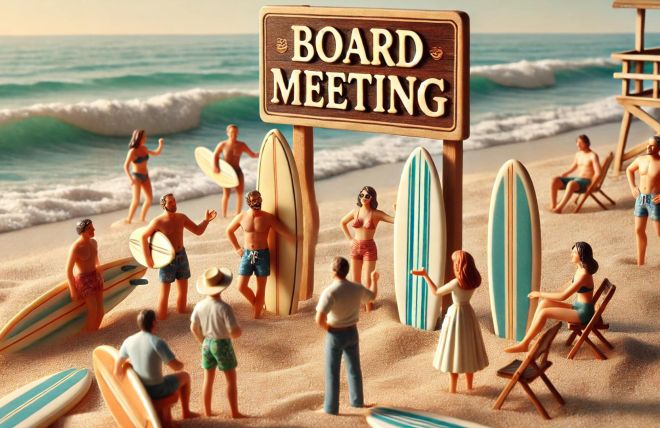HOA meetings are the backbone of good community governance, but let’s be honest—they can also be a scheduling and communication nightmare. When your board is juggling multiple calendars, unclear agendas, and last-minute cancellations, it’s easy for meetings to become more of a chore than a productive touchpoint.
The solution isn’t just having more meetings. It’s having better meetings. That starts with smarter planning, cleaner communication, and the right tools to tie it all together.
Let’s break down how your board can move from calendar chaos to structured simplicity.
Stop the Scheduling Struggle
The biggest pain point in HOA meeting planning is often just picking a time. Email chains spiral, text threads get lost, and before you know it, three weeks have passed and nothing is booked. Tools like Calendyze make this easy by letting people choose from your available times without endless back-and-forth. Want a group consensus on potential dates? Doodle is perfect for polling availability and seeing at a glance which time works best.
For standing board meetings, recurring schedules work best. Set a consistent rhythm—first Tuesday at 7 PM, for example—so members can block their calendars in advance.
Get Your Notices in Order
Once your meeting is scheduled, don’t forget the official notice. A surprising number of boards get tripped up by notice timing or delivery method. Your state laws and governing documents likely require you to send out HOA meeting notices a certain number of days in advance. This not only ensures legal compliance, but it also sets expectations and improves attendance.
If you’re planning an important decision, like a budget vote or board election, you'll likely need a quorum. Don’t wait until the last minute to understand what quorum actually means and how to reach it.
Simplify the Agenda
An effective meeting isn’t one that covers everything—it’s one that achieves something. Your agenda should focus on decisions, not just discussions. Aim for clarity, limit the number of agenda items, and assign estimated time slots to avoid dragging things out. Include unfinished business from prior meetings and leave a few minutes for owner input, if required by your bylaws.
Clear agendas also help reduce tension and surprises. Board members and residents alike appreciate knowing what’s going to be discussed in advance.
Embrace Meeting Etiquette
Even the best-laid agenda will fall apart without basic respect and structure. Following HOA board meeting etiquette—like sticking to time limits, avoiding interruptions, and not turning every issue into a debate—will help your meetings feel less like a battlefield and more like a collaboration.
Assign a timekeeper or parliamentarian if things tend to go off the rails. Use a consistent meeting script or format to keep the tone neutral and the process efficient.
Leverage the Right Tools
Don't rely on memory or paper notebooks to track action items. Today’s boards have access to powerful HOA software platforms that let you store documents, assign tasks, and send reminders. These tools make it easier to prepare agendas, record and distribute meeting minutes, and follow up on decisions without everything falling on one person's shoulders.
Plus, when you store everything in a shared space, it’s easier for new board members to get up to speed and for homeowners to stay informed.
Make Meetings Accessible to Everyone
Not every homeowner can attend meetings in person, especially if you have a large or diverse community. Consider offering hybrid or virtual meeting options for better participation. For offsite owners, tools that support digital communication can ensure they receive notices, agendas, and minutes without delay.
By improving accessibility and communication, you help your HOA build trust and transparency across the community.
Create a System You Can Repeat
HOA success is all about consistency. Once you’ve found a meeting planning process that works, document it. Use templates for your agenda, notice, and minutes. Save your Calendyze or Doodle setup for reuse. That way, even if the board changes, your system doesn’t fall apart.
Clear communication starts before the meeting and lasts long after it ends. With the right tools, discipline, and strategy, your board can stop fighting the calendar and start making real progress.







